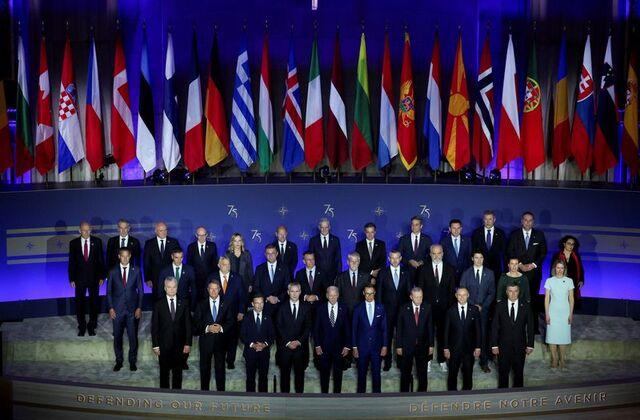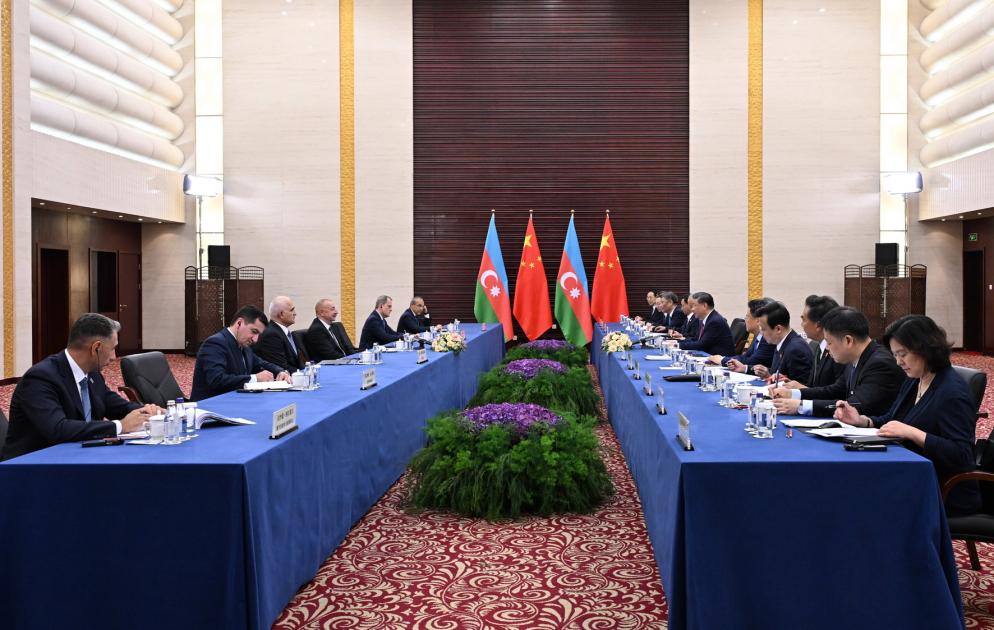Azerbaijan's strategic shift: Balancing power in a new world order Will Azerbaijan align with the East or the West?
A new global order is in the making now and the process has entered a decisive stage. The Collective West, led by the United States, aims to establish a unipolar world order founded on democracy, human rights, and the rule of law. This vision divides the world into two primary camps: the democratic West and the anti-democratic East, led by China, with the Global South trying to remain neutral. The geopolitical struggle between these two camps intensifies, particularly as they vie for the allegiance of countries in the Global South.
The geopolitical landscape
On the geopolitical front, the United States and its allies, particularly through NATO, have formed a coalition of over 50 countries, known as the Ramstein coalition, due to the war in Ukraine. NATO is increasingly looking to integrate Indo-Pacific countries like Japan, South Korea, Australia, and New Zealand into its fold, as seen in the recent NATO summit in Washington. Conversely, Russia leads the Collective Security Treaty Organization (CSTO) while China spearheads the Shanghai Cooperation Organization (SCO), aiming to secure regional and global stability without forming military blocs. China and Russia are actively trying to attract Global South countries to these organizations.

Geostrategically, the world is witnessing a competition for influence. NATO's globalization efforts include integrating partners from the Indo-Pacific region. Meanwhile, China's Belt & Road Initiative (BRI), launched in 2013, seeks to create extensive trade and transport networks. The United States, in a reactive approach, proposes alternative corridors like the India-Middle East Economic Corridor and the Development Road project backed by Türkiye, aimed at countering China's BRI. These initiatives reflect the broader struggle for dominance over trade, transport, and logistics routes.
Azerbaijan's strategic calculus
Geoeconomically, the rivalry is evident in the various infrastructure projects major powers propose. The BRI has three main branches: the northern route through Russia, the middle route through Central Asia and the South Caucasus, and the southern maritime route through the Pacific and Indian Oceans to the Mediterranean. Conflicts and sanctions have disrupted these routes, notably in Ukraine and the Red Sea. The US and its allies propose alternatives to safeguard their economic interests.
Azerbaijan's recent geopolitical moves reflect a nuanced strategy. It has historically distanced itself from the West and the Russian-led East, avoiding alliances like the CSTO and the Eurasian Economic Union. However, Azerbaijan is now pivoting towards China, establishing strategic relations with the new leader of the East. This shift is evident from the recent declaration between Azerbaijan and China, indicating Azerbaijan's intent to enhance its status within the SCO and potentially join BRICS.

Azerbaijan's strategy involves balancing relationships with Türkiye, Russia, and China while maintaining a distance from collective institutions led by Russia. This approach allows Azerbaijan to navigate its geopolitical, geostrategic, and geoeconomic interests effectively. The recent declaration with China underscores Azerbaijan's strategic intentions, hinting at a possible shift towards the East while keeping options open with the West.
Türkiye, unlike Azerbaijan, has long aligned itself with the West. A member of NATO and a candidate for EU membership, Türkiye leverages its relationships with Russia and China to enhance its negotiating power with the US and EU. Türkiye's global geopolitical ambitions and strategic maneuvering set it apart from Azerbaijan, highlighting the distinct approaches of the two nations in navigating the current global order.
The uncertain global situation, marked by conflicts like the Russia-Ukraine war and tensions in the Middle East, influences Azerbaijan's strategic decisions. The country's recent steps towards China reflect a strategic choice influenced by the evolving geopolitical landscape. Azerbaijan's aspirations to strengthen its position within the SCO and potentially join BRICS suggest a shift towards a more defined strategic alignment.
In conclusion, Azerbaijan's strategic pivot towards China and its balanced approach with Türkiye and Russia illustrate its complex navigation of the current global order. As the world watches, Azerbaijan's moves will significantly impact its geopolitical standing and future alliances in an increasingly multipolar world.








